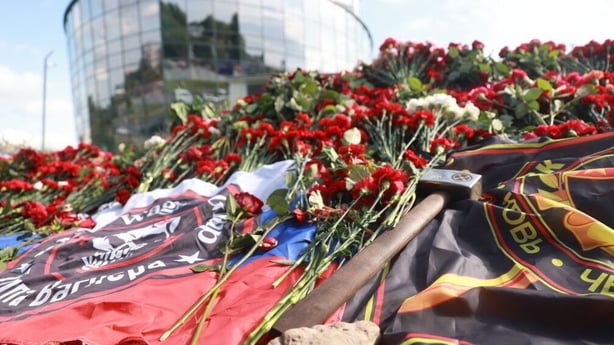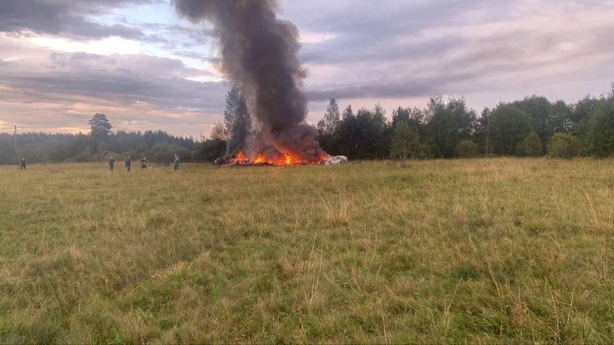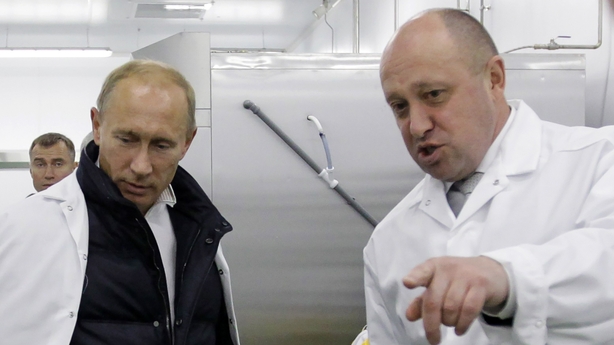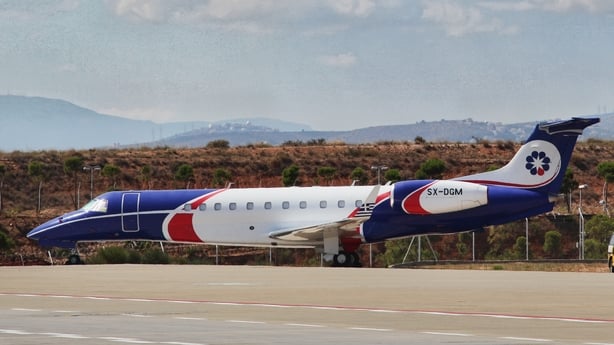The US Department of Defense has said it did not have information supporting theories that a surface-to-air missile was used to shoot down the aircraft of Wagner Group head Yevgeny Prigozhin in Russia yesterday.
The US military has "no information to suggest that there was a surface to air missile" involved in the crash, said department spokesman Pat Ryder, describing reports of a missile "inaccurate."
Earlier, two US officials had said the United States believed that a surface-to-air missile originating from inside Russia likely shot down the plane.
They said the information was preliminary and under review, but spoke on condition of anonymity and offered no evidence.
This afternoon Russian President Vladimir Putin said an official investigation will take place into the circumstances of the plane crash in which Prigozhin died.
In his first comments since the crash, Mr Putin described the 62-year-old as a talented businessman who he had known since the 1990s and expressed his condolences to the families of the ten people who were killed yesterday.
He said that Prigozhin was a man who made mistakes but "achieved results".
The president also said it was necessary to await the outcome of the investigation, saying it would take time.
Until Mr Putin's comments, there had been no official confirmation of Prigozhin's death beyond a statement from the Russian aviation authority saying that he was on board.
Ukrainian President Volodymyr Zelensky also hinted at Russian involvement, telling reporters: "We have nothing to do with this situation, that's for sure. I think everyone knows who this concerns".
He was speaking as Ukraine marked its Independence Day today.
State media in Russia has given the crash low-key coverage.
Prigozhin was head of the Wagner group and a self-declared enemy of the military leadership over what he said was its incompetent prosecution of Russia's war in Ukraine.
The executive jet, which had been flying from Moscow to St Petersburg and was reported to have also been carrying senior members of his team, crashed near the village of Kuzhenkino in the Tver region north of Moscow.
The Baza news agency reported that investigators were focusing on a theory that one or two bombs may have been planted on board.
Prigozhin spearheaded the mutiny against the army leadership on 23-24 June which Mr Putin said could have tipped Russia into civil war.

The mercenary leader also spent months criticising the conduct of Russia's war in Ukraine - which Moscow calls a "special military operation" - and had tried to topple Defence Minister Sergei Shoigu and Valery Gerasimov, chief of the General Staff.
The mutiny was ended by an apparent Kremlin deal that saw Prigozhin agree to relocate to neighbouring Belarus, but he had appeared to move freely inside Russia.
Prigozhin posted a video address on Monday which he suggested was made in Africa.
He attended a Russia-Africa summit in St Petersburg last month.

A Telegram channel linked to Wagner, Grey Zone, pronounced him dead yesterday and hailed him as a hero and a patriot who it said had died at the hands of unidentified people it called "traitors to Russia".
Mourners left flowers and lit candles near Wagner's offices in St Petersburg.
Read more:
Prigozhin death may create new problem for Putin
Putin's wrath: has the 'apostle of payback' struck again?
Residents of a village near to where the plane crashed heard a bang, and then saw the jet plummet to the ground.
Vitaly Stepenok said there was "a bang and I looked up and saw white smoke."
"One wing flew off in one direction and the fuselage went like that," the 72-year-old said.
"Then it glided down on one wing. It didn't nose-dive, it was gliding."
Mr Stepenok said he was afraid the plane would fall onto houses.
Another villager said that "it wasn't thunder, it was a metallic bang".

The plane had only recorded one accident in over 20 years of service, according to website International Aviation HQ, and it was not due to mechanical failure.
The plane showed no sign of a problem until a precipitous drop in its final 30 seconds, according to flight-tracking data.

Prigozhin had mounted the most serious challenge to President Putin's authority since he came to power in almost a quarter of a century ago.
Many people who opposed the Russian president died in mysterious circumstances, with Moscow always denying any state involvement.

